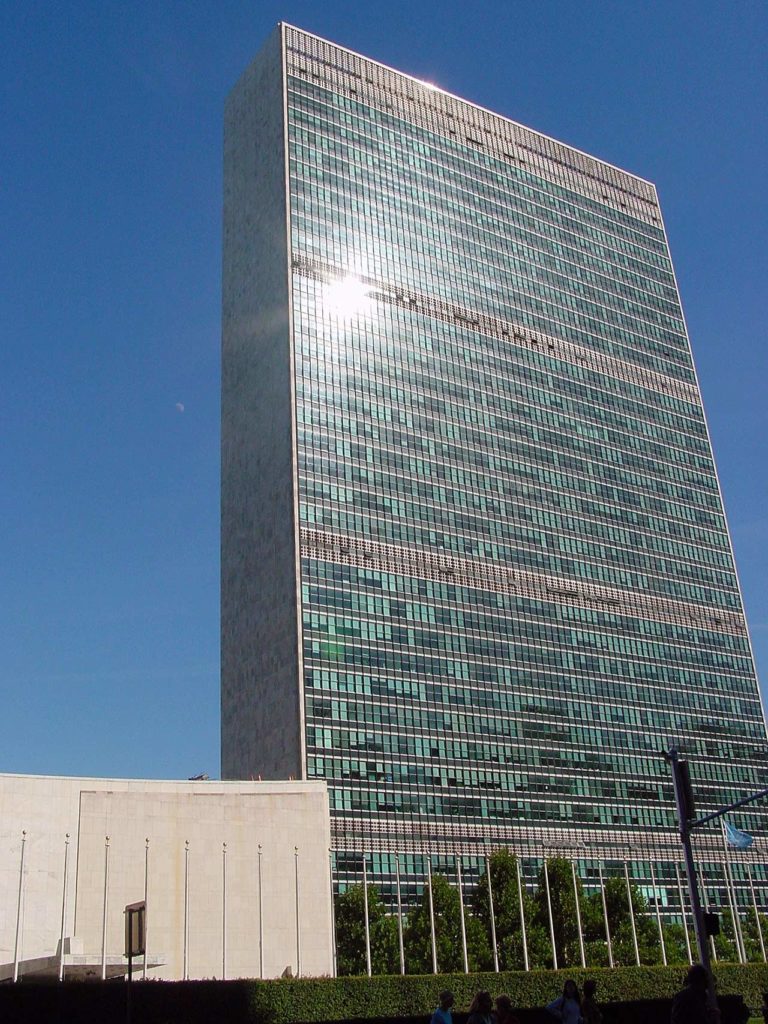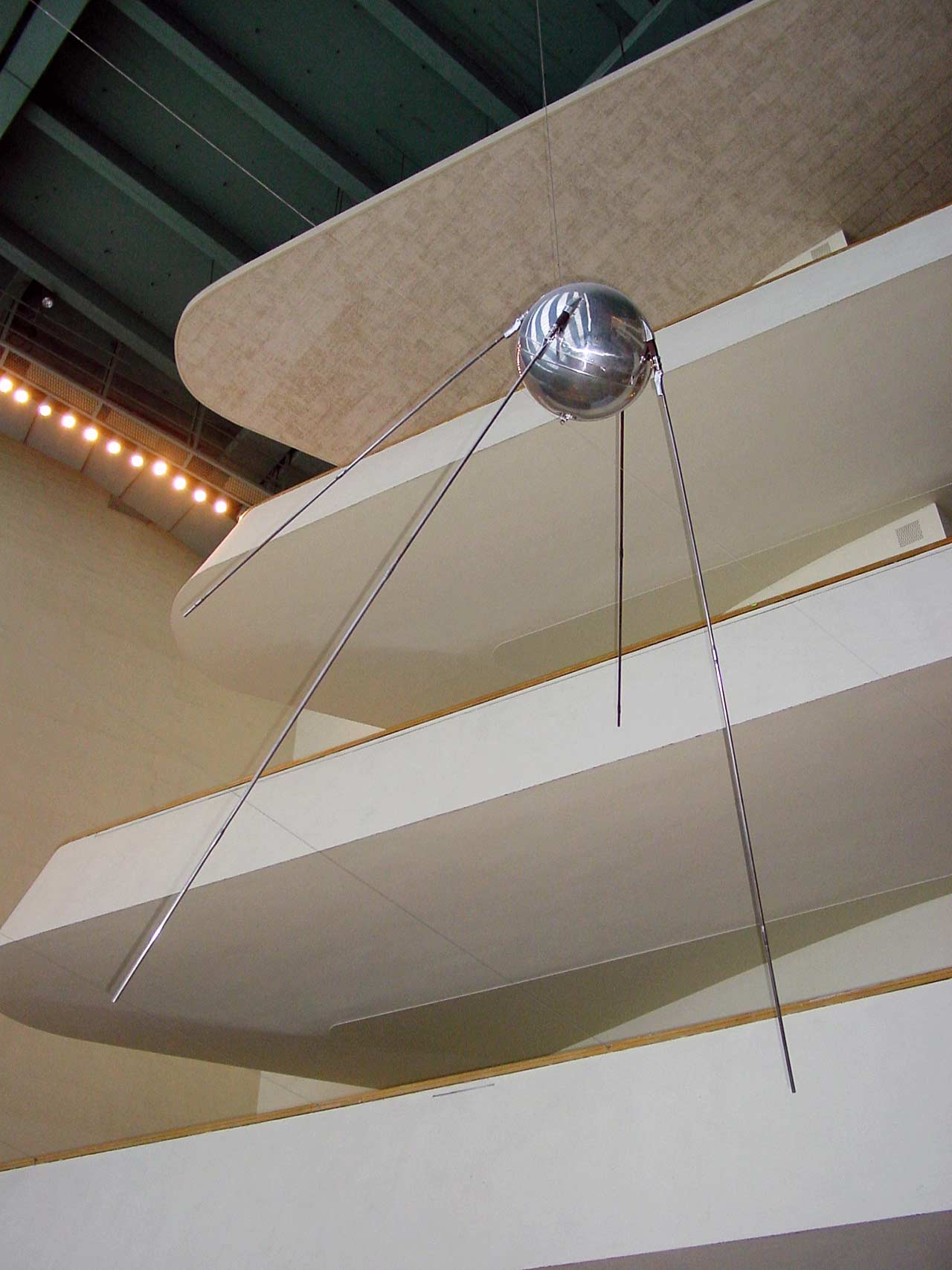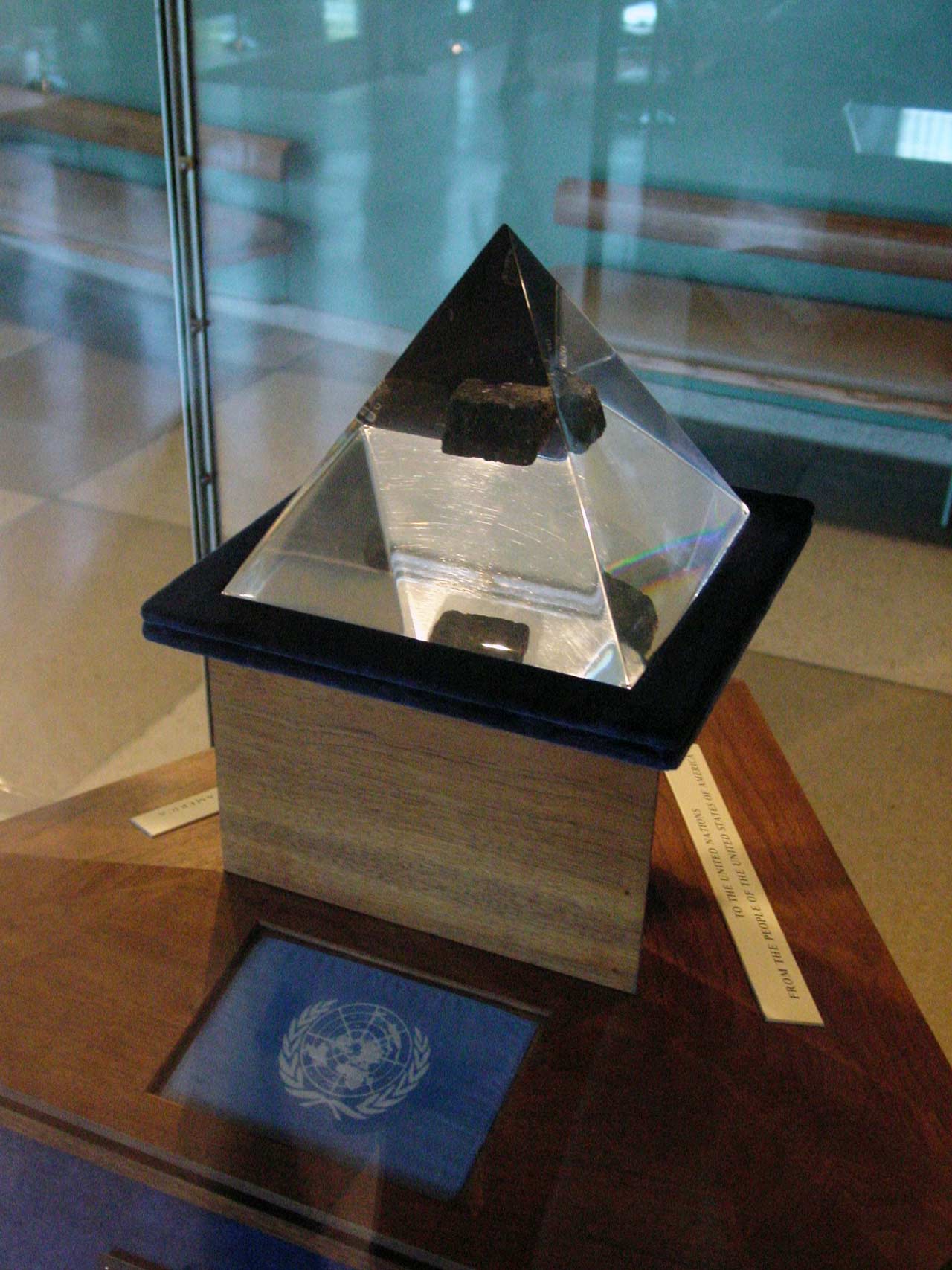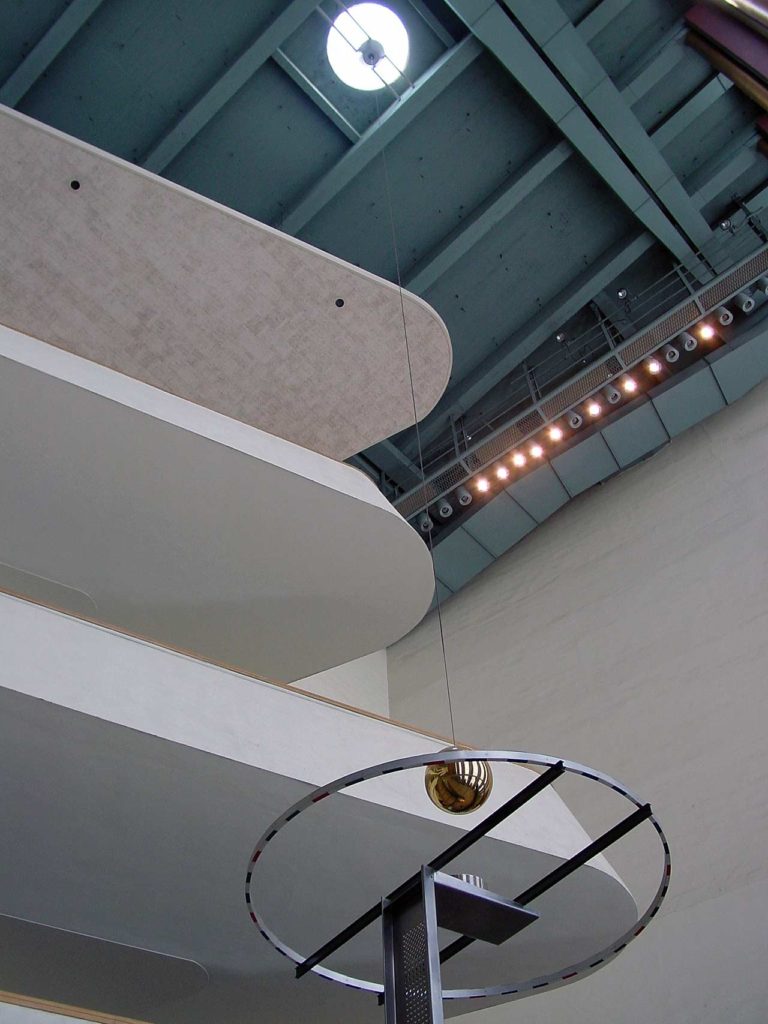United Nations
First Avenue at 42nd Street
Manhattan
Natural History special issue
Part of City of Stars photo essay.
The UN’s thirty-nine-story Secretariat building, one of the world’s first glass towers, was an icon of peace for the twentieth century and has become a symbol of hope for the twenty-first. And that the UN’s General Assembly building—the hall where representatives of the 188 member states convene—should house a Foucault pendulum, a Moon rock, and a model of Sputnik 1 tells me that science and space exploration retain a unique capacity to trigger thoughts of peaceful coexistence among all nations.

The Secretariat building’s architectural slab happens to share the proportions of the famous black monolith in the 1968 Stanley Kubrick film 2001: A Space Odyssey. If the short side is length “1,” then the medium side length is “4,” and the long side is length “9.” These three numbers are the squared sequence 12 = 1; 22 = 4; 32 = 9. Actually, the movie monolith’s size does not stop at three dimensions. It continues into higher (invisible) dimensions: 42 = 16; 52 = 25; 62 = 36 … and so forth. Fortunately, the United Nations keeps it simple and stops at length, width, and height.




